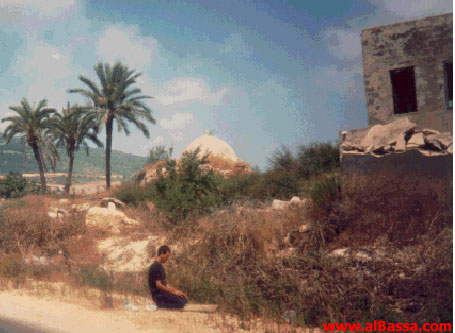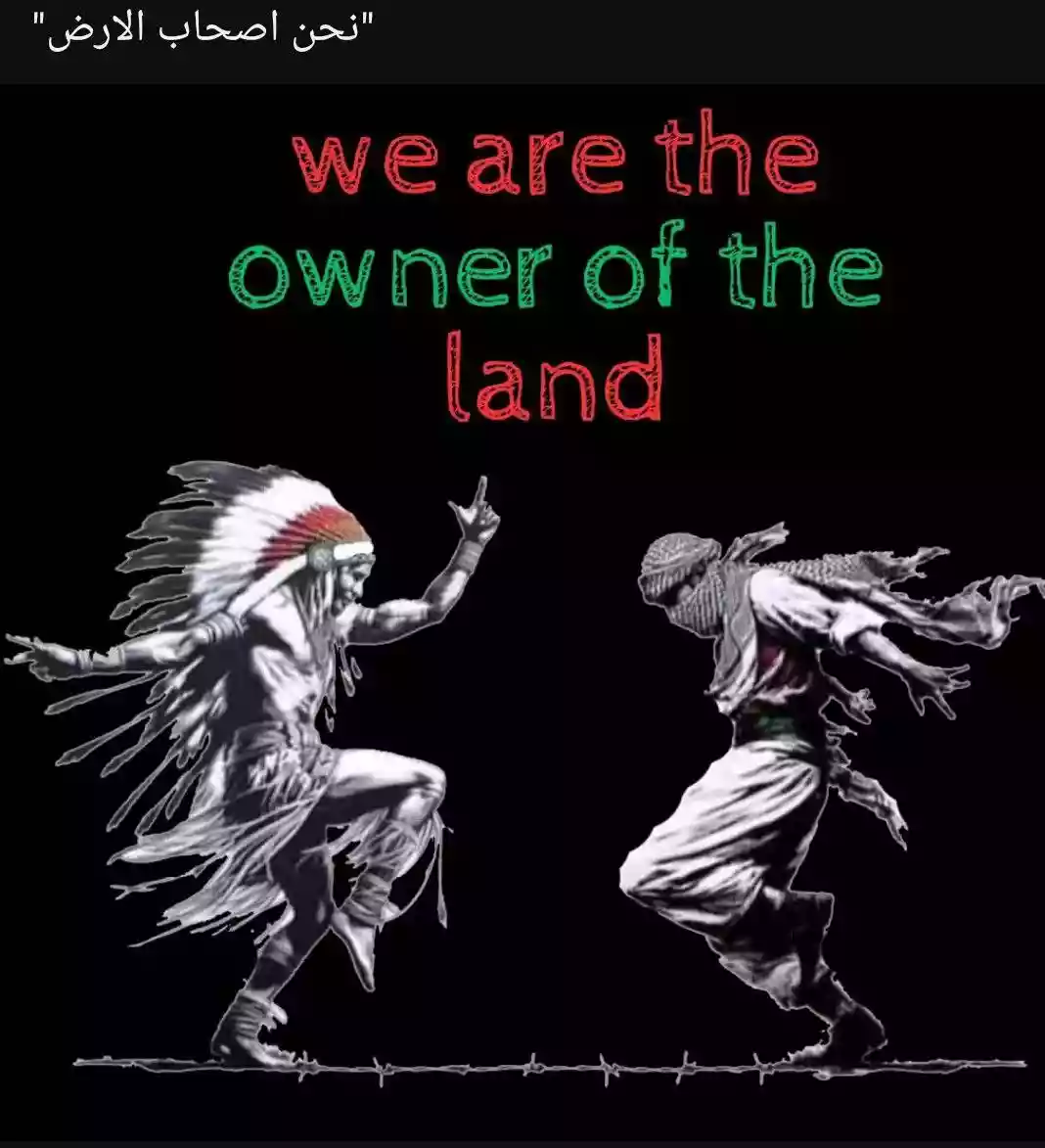1. AL BASSA GETS TERRORIZED.
( Just updated the article )
For many years before the Nakba the palestinian militiamen fought for the independence of Palestine from Britain. Lots of the militiamen were villagers, who dreamed of an independent palestinian state. Some villagers were organised in their act of resistance, while some others were spontaneous. This spontaneity had a high cost, which the palestinian civilians had to pay in many cases. One of these cases led to a massacre on the road leading from Al Bassa to Akka (Acre).
One evening in the summer of the late 1930s a road mine exploded , as a British military jeep was on its way from Al Bassa military airport to Akka (there was an argument between my father and my mother about the exact year whether it was 1936 or 1938). The soldiers in the jeep were either killed or injured. One of the killed soldiers was an Officer and a son of an english Lord. No one knew who was responsible for that action. Any way the British discovered another mine by the road, which was still ready to explode. The British presumed that the militia men were from Al Bassa, because Al Bassa was the nearest village to that spot. The first thing which the british soldiers did was to launch an attack on Al Bassa and its villagers.
(There is a piece of information which I hesitated to add before, because of the awkward names my grandfather used then. Anyway here it is.)
Two days prior to the attack on Al Bassa a British military investigator came with some soldiers. They met with the Council of Al Bassa. They wanted to know if anyone knew those men, who planted the road mines. They could not get any information from the Council, because no one knew anything. After that as the soldiers and the investigator were on their way out of Al Bassa, they stopped at my grandfather`s shop, as it was located near the entrance/exit of Al Bassa. As the investigator interrogated my grandfather, he had one of Al Bassa officials, Wadieh Azzam, to translate. My grandfather could not tell him anything. The investigator did not believe my grandfather, because he was convinced that my grandfather knew everyone and everything which went on in the village.
The next day came the British military investigator accompanied by Yona. Yona was the Mokhtar of Hanuta, the newly established Jewish settlement east of Al Bassa. Yona considered my grandfather as friendly, because my grandfather never treated any of the European Jewish settlers badly.
Yona spoke broken Arabic, but it was enough to understand him. Yona and the British investigator pressed my grandfather for information, but my grandfather swore to them many times that he did not know anything. Unfortunately they did not believe him. After a long talk with my grandfather, he agreed to give them three names. Then my grandfather said to Yona write those names down. The names were.
1. Kharyan
2. Dartan
3. Fasyan
Then Yona asked my grandfather about their surnames, but my grandfather assured them that he did not know anything more to give. The military investigator was pleased and thanked my grandfather, then he and Yona went directly to the Council of Al Bassa. They met with Wadieh Azzam and asked him about the whereabouts of those men. When Wadieh Azzam read the names, he busted out laughing. The investigator and Yona looked at each other and did not understand the real reason of his laughter. Later Wadieh Azzam asked them about who gave them the names. They told him it was Abu Elias. Then Wadieh Azzan went to my grandfather accompanied with the British military investigator and Yona. There they understood that those were not real names. My grandfather explained that he made them up to get rid of Yona and the investigator. This coasted the destruction of my grandfather´s shop and severe beating, as you can read further on in the article.
As the british soldiers were on their way to Al Bassa, they were seen by some Bassawis, which ran to Al Bassa and warned the other villagers. Lots of the villagers ran off in fear. Some villagers ran to the mountain (Jabal Al Moshaqah) to hide. Some ran to a nearby hill called Jubail (little mountain). My father was about 15 years old at that time, and my mother was about 12 years old. My parents were among those women and children who took refuge in Jubail. Some were not able to run away because of their bad health, and others remained because they did not want to stop their work. According to that which my parents told me, there was a very sick man from another village called Tarshiha. That man was getting treatment at the village´s private clinic owned by Dr. Zo´arob. One of the Bassawis and his son were at home hanging tobacco leaves to dry. A bassawi woman was in labour, and some women including the midwife Wardeh Ballout (a cousin of my granfather from my mother`s side) were by her side. Some old Bassawis were playing cards in the café and smoking a nergili (a traditional palestinian pipe). Some pregnant women and women with little children were among the few who remained in the village.
When the soldiers arrived, they opened fire on the orders of their superior officer, whose name was Sergeant Ford. Some soldiers started attacking the remaining villagers either by shooting them or beating them. Other soldiers bombarded the villagers, who were hiding in Jabal Al Moshaqah . The soldiers used cannons to bombard the mountain. Some soldiers killed a man and his son (from Kassis family) by shooting them directly in the head, while they were hanging tobacco leaves. Others attacked the clinic where the sick man from Tarshiha was laying down to get treatment. A soldier killed one of the villagers (from Laiyous family) by hitting him on the head with a wooden hammer called Modaqa, which is still being used in the palestinian kitchen. That man died instantly while some of the villagers were watching helplessly. Another Bassawi ( from al-Banna family) was shot dead as he was standing by his house. A third man was also shot dead on the road near Jubail. Another villager called Yousef Mansour was taken to the kitchen of his house by a British soldier, who put Yousef´s head in the stone mortar (called in Arabic Jorn) and crushed it with the Modaqa. Jorn is a big stone normally laying on the ground of the kitchen, with a big hole in it, about 20 cm in diameter, and it is still being used in the Palestinian kitchen to crush meat. At that time Yousef Mansour`s wife was pregnant, few months later she gave birth to a son, whom she called Tayyem (pronounced Tay-yem), which is derived form the Arabic word "yateem" and it means orphan. Yousef was the brother of Nqula (in English Nicholas). Nqula was the husband of my oldest aunt Hanneh (in English Anna), Tayeem is dead now and burried in Denmark. Lots of Bassawis got wounded by the British bullets. A number of pregnant women miscarried because of the soldier´s terror including that woman who was in labour.
Later the soldiers gathered the villagers in the centre of the village. They separated the men on one side, and the women including the children on the other side. The women tried to protect the young boys in different ways from being sorted out with men. One of the ways which two women used was getting a boy dressed with a woman´s dress. That boy was my father. The soldiers had no mercy on any one. They beat the men cruelly with ropes until they bled. The ropes which they used were wet and with several knots on them and to cause the worst pain possible. They even used the bottom of their guns to hit the villagers. My grandfather Abu Elias (from my father´s side) almost lost an eye because of that beating. My other grandfather Abu Simaan (Akl Ballout) got one of his hands broken. Other villagers got physically hurt too in other ways. As the villagers watched, the British went on vandalising the properties and destroying the crops. Almost all the villagers´ water melons were squashed by the soldiers´ feet before being harvested. The british destroyed lots of private properties. One of the destroyed properties was the shop owned by my grandfather Abu Elias ( Eid Elias Bechara Haddad).
Later the soldiers chose some 30 young Bassawis and stripped them of their clothes. The British beat them as the villagers watched with their sad eyes. After a while, they transported them to an army base east of Al Bassa, located on the road leading to a village called Iqrit. The base was known as Samah base. There, the British interrogated the Bassawis by using all forms of physical torture. After some hours the British brought the Bassawis back with blood covering their bare bodies. The Bassawis thought that it was the end of the british madness, but things were not as expected. As the British wanted revenge for that action of resistance, they brought an empty bus and forced the young Bassawis to get on it. Later as the bus was on its way to the explosion´s spot, new orders came. The orders were to let the Bassawis free and to force 30 Zeebawis (Al Zeeb villagers/Al Zeeb is a neighbouring village to Al Bassa) on the bus instead of the Bassawis. Those orders came from the same Sergeant Ford.
2. A SHARED MEMORY FROM AL BASSA AND AL ZEEB.
In Al Zeeb 30 young men were forced on the bus without knowing the miserable destiny, which the British have planed for them. The british soldiers ordered the zeebawi driver to drive the bus on the spot, where the other unexploded mine was buried. The driver refused that order. Later under the threat of fire from the guns he drove the bus on that designated spot. The mine did not explode. The Zeebawis and the Bassawis, who were there watching that barbarian act of revenge, they cheered for the safety of the men. The Bassawis and the Zeebawis thought, that the British would let the 30 young men go free now. They were wrong. The British forced the bus again on that spot. The mine did not explode for the second time. The young Zeebawis tried to get off the bus, and the other villagers tried to free them too, but the british hunger for a bloody revenge prevented that from happening. The british soldiers started firing over the heads of the crowd, and at the bus. Then the driver was forced to drive on that spot once more.
As the villagers, Christians and Moslems, Bassawis and Zeebawis were crying with prayers, and as the young men on the bus were chanting Allah O Akbar (God is great) the driver drove the bus over the mine for the last time. The mine exploded and killed every one on the bus. As the parents, wives, children, relatives and other villagers watched the doomed bus burning and while being unable to save their beloved ones, the british revengeful soldiers rode off in their jeeps with a typical british cold smile on their lips, as a sign of satisfaction for the cold blooded massacre of those 30 brave men.
A lot of those, who were eyewitnesses to that unforgetable incident, are still living and telling the story to their children and grandchildren. As I was a child, and as I was a young man, I heard this story many times from different persons including my own parents, my uncle Yousef who was 19 years old at that time, and my other relatives and old neighbours. The names of those Bassawis and Zeebawis are still engraved on the minds of the tellers who lived that story.
Al Bassa had three makhateer at that time (makhateer is the plural of mokhtar, who acts as an official advisor and representative), one for the Bassawi catholics, another for the orthodox, and a third for the moslems. At the time of that incident the catholic mokhtar was dead, while the orthodox mokhtar Wadieh Azzam, and the moslem mokhtar Khader Al-Ahmad were living. Few days after the incident a new catholic mukhtar was oppointed, whose name was Jabbur Al-sabbagh nicknamed Al-Harruq. The catholic mokhtar Jabbur Al-Sabbagh was the one who filed a report of the complaints of the Bassawis to Akka´s Qa´em Maqam ( the ruler of Acre). The Qa´em Maqam filed an official complaint to the british mandate authorities in Palestine, but there was no official responce or refund for the damages.
I have just received a list of only six names of the zeebawi men who were excuted on the bus:
1. Abdulrohman Sa`adeddin
2. Yunis Al-Sheikh Taha
3. Mohammad Abd Issa Attaya
4. Mustafa Muhammad Al-Faqir
5. Khaled Al-Khatib
6. Ahmad yunis Jima´a
Some full names (obtained of the Acre Letters) of the bassawis who were killed:
1. Rakad Al-Layous
2. Khalil Halaqa
3. Aouda Al-Yamani
Any one who has any information about this massacre, please inform me to add it.




Post Your Comment
*It should be NOTED that your email address won't be shared, and all communications between members will be routed via the website's mail server.